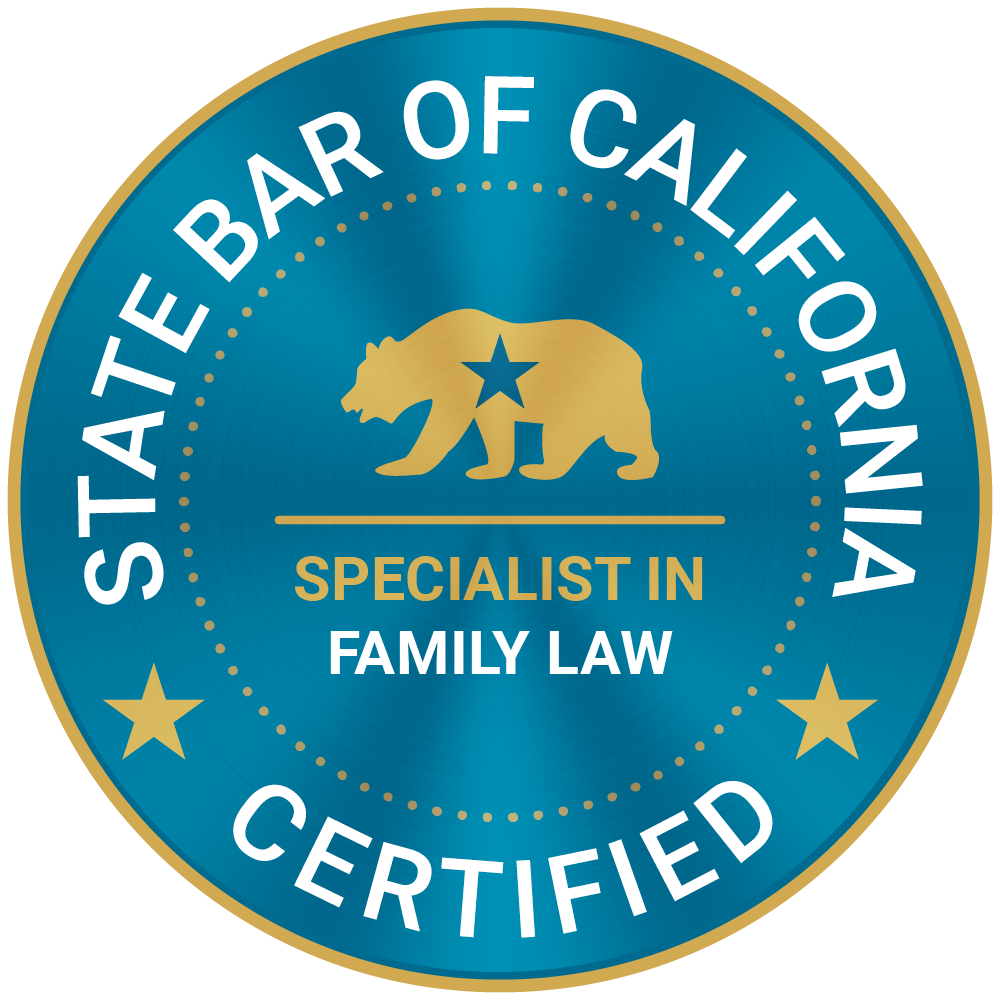
GUIDING YOU THROUGH WAVES OF CHANGE
With our expertise in family law, we help Southern California families navigate divorce, custody, and more.


Family Law Attorneys in Southern California
We will guide you through every step of the process, helping you gather necessary documents, discuss child custody and property arrangements, and work toward a mutually agreed-upon agreement. If no agreement is possible, we represent you in court.
Our job is to keep your case moving forward, step by step, while protecting your rights and lowering your stress.
LEGAL SERVICES
LEGAL SERVICES
We handle the following legal services and more!
Divorce
A divorce is a court judgement stating that you are no longer married to your spouse. We walk you through every stage with the goal of resolving your case efficiently while protecting what matters most.
- Community property & asset division
- Spousal support / alimony
- High-conflict divorce
- Mediation or litigation
Child Custody & Visitation
Custody decisions can be emotional and complex. We help clients build parenting plans and fight for fair outcomes that prioritize your child’s well-being.
- Legal and physical custody
- Move-away orders
- Custody for fathers
- Emergency custody hearings
Domestic Violence Protection
No one should feel unsafe in their own home. If you are facing abuse, we act swiftly to secure restraining orders and long-term legal protections for you and your children.
- Emergency restraining orders
- Long-term protective orders
- Legal safeguards for children
- Assistance with court representation and documentation
Family Law Appeals
Did your case result in an unfair judgement? We handle family law appeals with precision, helping you seek review and reversal of unjust court decisions.
- Improper legal rulings
- Procedural errors
- Misapplication of California family law
Divorce
A divorce is a court judgement stating that you are no longer married to your spouse. We walk you through every stage with the goal of resolving your case efficiently while protecting what matters most.
- Community property & asset division
- Spousal support / alimony
- High-conflict divorce
- Mediation or litigation
Child Custody & Visitation
Custody decisions can be emotional and complex. We help clients build parenting plans and fight for fair outcomes that prioritize your child’s well-being.
- Legal and physical custody
- Move-away orders
- Custody for fathers
- Emergency custody hearings
Domestic Violence Protection
No one should feel unsafe in their own home. If you are facing abuse, we act swiftly to secure restraining orders and long-term legal protections for you and your children.
- Emergency restraining orders
- Long-term protective orders
- Legal safeguards for children
- Assistance with court representation and documentation
Family Law
Appeals
Did your case result in an unfair judgement? We handle family law appeals with precision, helping you seek review and reversal of unjust court decisions.
- Improper legal rulings
- Procedural errors
- Misapplication of California family law
Experienced Divorce and Custody Lawyers Servicing Southern California Families for More Than A Decade
Why Clients Across Southern California Trust Our Family Law Firm
Free, No-Obligation Divorce & Family Law Consultation
Get one-time, free, no-obligation legal advice designed to give you clarity and direction in your case. Call our number and your preferred male or female family lawyer.
10+ Years Of Experience in All Types of Divorce & Separation Proceedings
With over a decade of experience, we’ve handled everything from uncontested divorces to high-conflict cases involving child custody, property disputes, and long-term marriages under California’s family law system.
You Get 100% Undivided Attention When We Take You On As A Client
We give you our full attention and work to move your case forward, not just because it’s the right thing to do, but because we believe in doing what's best for you.
Compassionate, Responsive, and Professional
We’re here when you need us. Every message is returned, every concern addressed, with the respect and empathy your situation deserves.
You Have A Say In Who You Work With—Male Or Female Attorney
Your comfort and emotional safety matter. Work with the attorney you feel most at ease with — male or female, your choice.
Free, No-Obligation Divorce & Family Law Consultation
Get one-time, free, no-obligation legal advice designed to give you clarity and direction in your case. Call our number and your preferred male or female family lawyer.
10+ Years Of Experience in All Types of Divorce & Separation Proceedings
With over a decade of experience, we’ve handled everything from uncontested divorces to high-conflict cases involving child custody, property disputes, and long-term marriages under California’s family law system.
You Get 100% Undivided Attention When We Take You On As A Client
We give you our full attention and work to move your case forward, not just because it’s the right thing to do, but because we believe in doing what's best for you.
Compassionate, Responsive, and Professional
We’re here when you need us. Every message is returned, every concern addressed, with the respect and empathy your situation deserves.
You Have A Say In Who You Work With—Male Or Female Attorney
Your comfort and emotional safety matter. Work with the attorney you feel most at ease with — male or female, your choice.
How Much Does Getting A Divorce Cost In California?
Divorce in California takes a minimum of six months, but high-conflict cases can last much longer and cost significantly more. Because California is a 50/50 property state, how assets are divided can affect both timeline and expense.
We guide you through it all, with transparency and flexible payment options, including:
CASH
ACH TRANSFER
CHECK
CASH
ACH TRANSFER
CHECK
At Harris & McKeown Law Firm, we offer hourly billing with clear estimates based on your needs, so you know exactly what to expect before we begin. We’ll walk you through all your options up front and help you choose what works best and we’ll do our best to accommodate.
CLIENT TESTIMONIALS
CLIENT TESTIMONIALS
“I came to Harris & McKeown during the hardest time of my life. Andrew’s calm and knowledgeable presence gave me both clarity and strength. He explained every step and never made me feel rushed or alone. I always felt like someone was genuinely on my side.”
— Melissa J. | Divorce & Custody Client
“Kaleen is a true powerhouse in court! Sharp, assertive, and always prepared. But what stood out most was her compassion outside the courtroom. She listened without judgment, respected my boundaries, and made me feel safe. I knew I was in the right hands from the very first meeting.”
— David L. | Domestic Violence Case
MEET OUR TEAM
MEET OUR TEAM

Andrew Mckeown, Esq.
PARTNER
Andrew is our experienced attorney that you can trust to get the results you need in all your family legal matters.

Kaleen Harris, Esq.
FOUNDING PARTNER & PRESIDENT
Kaleen diligently strives to resolves all matters efficiently & effectively, keeping her clients informed through every step of the process.

Celina Estrada, Esq.
ASSOCIATE ATTOURNEY
Celina is a dedicated attorney, committed to compassionate, results-driven advocacy and guiding clients through every step.

Michael Jakovich
LEGAL ASSISTANT
Michael is the first one to greet our clients and his friendly disposition helps put everyone at ease.

Andrew Mckeown, Esq.
PARTNER
Andrew is our experienced attorney that you can trust to get the results you need in all your family legal matters.

Kaleen Harris, Esq.
FOUNDING PARTNER & PRESIDENT
Kaleen diligently strives to resolves all matters efficiently & effectively, keeping her clients informed through every step of the process.

Celina Estrada, Esq.
ASSOCIATE ATTOURNEY
Celina is a dedicated attorney, committed to compassionate, results-driven advocacy and guiding clients through every step.

Michael Jakovich
LEGAL ASSISTANT
Michael is the first one to greet our clients and his friendly disposition helps put everyone at ease.
News & Updates
GET A FREE CONSULTATION
We understand that choosing the right family law attorney can be a difficult task. We provide a free assessment to outline a legal strategy for your situation and allow you to see if our firm is a good fit for you. Reach out to us for your free consultation today!










